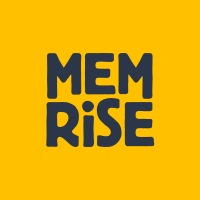List of Improvements
Learn how to learn from your mistakes by growing beyond complaining and suffering. This week’s issue is about language learning, rehydration therapy, and deep work.

We humans seem to be particularly good at suffering and complaining. Often when something undesirable happens to us, our default response is to deny responsibility and address those events to some external circumstances. Factors that are out of our control.
Makes sense. Because it follows that there’s no need to invest time and energy to change our perception, behavior, or character. Thus, complaining becomes a convenient coping mechanism for anything that doesn’t suit our liking.
On top of that, the amount of resource investment and dissolution of ego required to change ourselves appears so high that we rather chose to suffer.
Makes sense. Because suffering is much easier than driving change. Suffering merely requires rejecting what is while simultaneously remaining inactive.
We dread the task of changing our perceptions and actions so much that we prefer to suffer and complain. That’s just so much easier. Rarely do we take even a minimum of time to reflect on our behavior when undesirable things happen in our lives.
To break this pattern I suggest making Lists Of Improvements. Such a list consists of just three steps. After something undesirable happened and the emotional tides have calmed down we reflect on
- what needs to be changed in our belief system or our actions to prevent the specific event from occuring again,
- which actions are useful and appropriate to deal with this event if it does happen again, and
- to which other events and circumstances these changes can be applied.
These lists can remain in our heads, we don’t need to write them down. It suffices to take a minute to contemplate these questions.
Someone notices a growing pain in their jaw. They continue their day-to-day life unchanged until the pain eventually becomes unbearable. They go to the dentist and it turns out, caries has destroyed the tooth and it must be pulled.
The next time they have pain in the jaw? They do exactly the same. And even if they have learned from the pain in the jaw, they are not able to transfer the lesson. Next time there’s a pain in the stomach or a joint. Instead of getting it checked out immediately and making changes in their lifestyle, they resort to complaining and suffering.
I know, it sounds stupidly easy. Nevertheless, from what I’ve experienced so far most people—including myself—seem to not reflect on responsibility. At least not as much or often as we all should. We often simply refuse to learn from our behavior. We don’t learn because we’re caught in our minds and egos. Neither do we ask the right questions nor do we listen to the answers. Often we don’t want to learn. We don’t want to change.
People learn nothing. Don’t be that guy.
Without reflection and responsibility, we’re doomed to relive our undesired happenings over and over again into infinity until they eventually teach us their lessons.
Making mistakes is human. Stupid is making the same mistake twice.
Have a phenomenal week!
⏤Ferdinand
✨ Sparks
📱 App: Memrise (Apple App Store/Google Play Store)
Online service to learn languages. Memrise has been my favorite language-learning app ever since I tried Duolingo, Babble, and a bunch of others. It offers thousands of video conversations between natives and also a new AI chatbot you can practice your skills with.

📝 Article: Salt, Sugar, Water, Zinc: How Scientists Learned to Treat the 20th Century’s Biggest Killer of Children
Story about the discovery of oral rehydration therapy (ORT), a method to replace fluid to prevent and treat dehydration. ORt has been estimated to decrease the risk of death from diarrhea by up to 93%. It is therefore an essential treatment for any disease or infection that is accompanied by diarrhea.
Today we know that scurvy is caused by a lack of vitamin C — a nutrient found in fresh food, like lemons and oranges. Medics in the Royal Navy during the 19th century had never heard of vitamin C, but they did know that sailors who drank a regular ration of lemon juice never seemed to fall ill with the disease, so that’s exactly what they supplied on long voyages. In 1860 the Royal Navy switched from lemons and Mediterranean sweet limes to the West Indian sour lime, not realizing that the West Indian limes contained a fraction of the vitamin C. For a while, the error went undiscovered because the advent of steamships meant that sailors were no longer going months without access to fresh food. But in the late 19th century, polar explorers on longer voyages started to fall ill with scurvy — a disease that they thought they’d seen the back of decades earlier. Without a knowledge of the underlying biology behind scurvy, a cure had been discovered and then promptly forgotten.
Despite saving so many lives, the impact of ORT [oral rehydration therapy] is easily overlooked. Ask someone what the biggest health innovations were in the 20th century and they’re likely to think of insulin, or the discovery of penicillin. Why hasn’t the development of ORT been elevated to a similar place in the history books? One reason might be the sheer simplicity of the treatment.


Stamps from public campaign to increase awareness for oral rehydration therapy.

🎬 YouTube Video: Change Your Life In 6 Months
Dan Koe explains how to develop a focused routine through consistent execution using the example of writing.
💡 This Week’s Wisdom
Like the ocean, the native state of the feminine is to flow with great power and no single direction. The masculine builds canals, dams, and boats to unite with the power of the feminine ocean and go from point A to point B. But the feminine moves in many directions at once. The masculine chooses a single goal and moves in that direction. Like a ship cutting through a vast ocean, the masculine decides on a course and navigates the direction: the feminine energy itself is undirected but immense, like the wind and deep currents of the ocean, ever changing, beautiful, destructive, and the source of life.
From The Way of the Superior Man by DAVID DEIDA.
Captured and resurfaced using the phenomenal Kindle reader.
Did you enjoy this issue? If you draw value from Sunday Sparks please consider contributing to this publication’s financial freedom.
Flows straight into content, not coffee.






